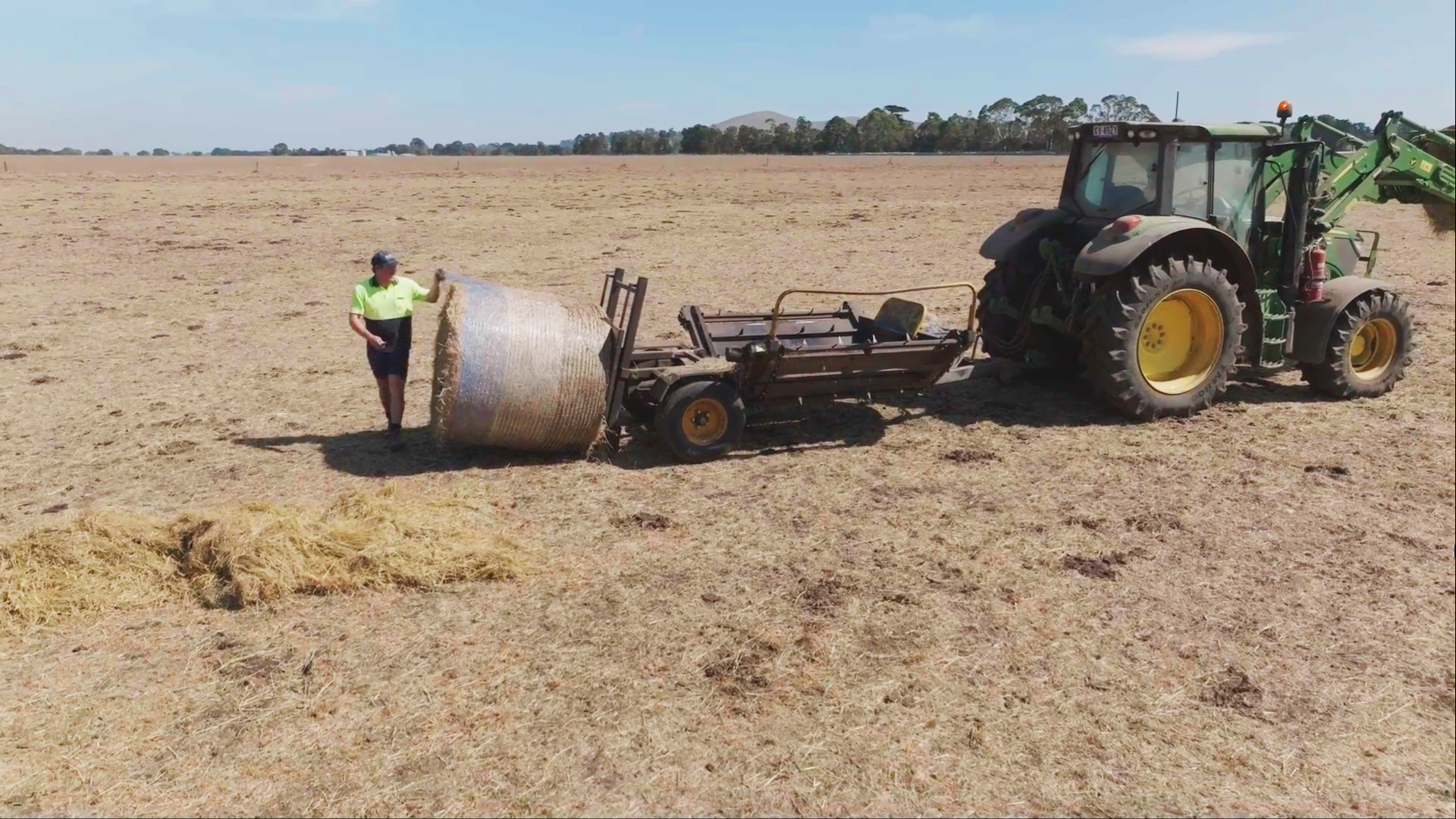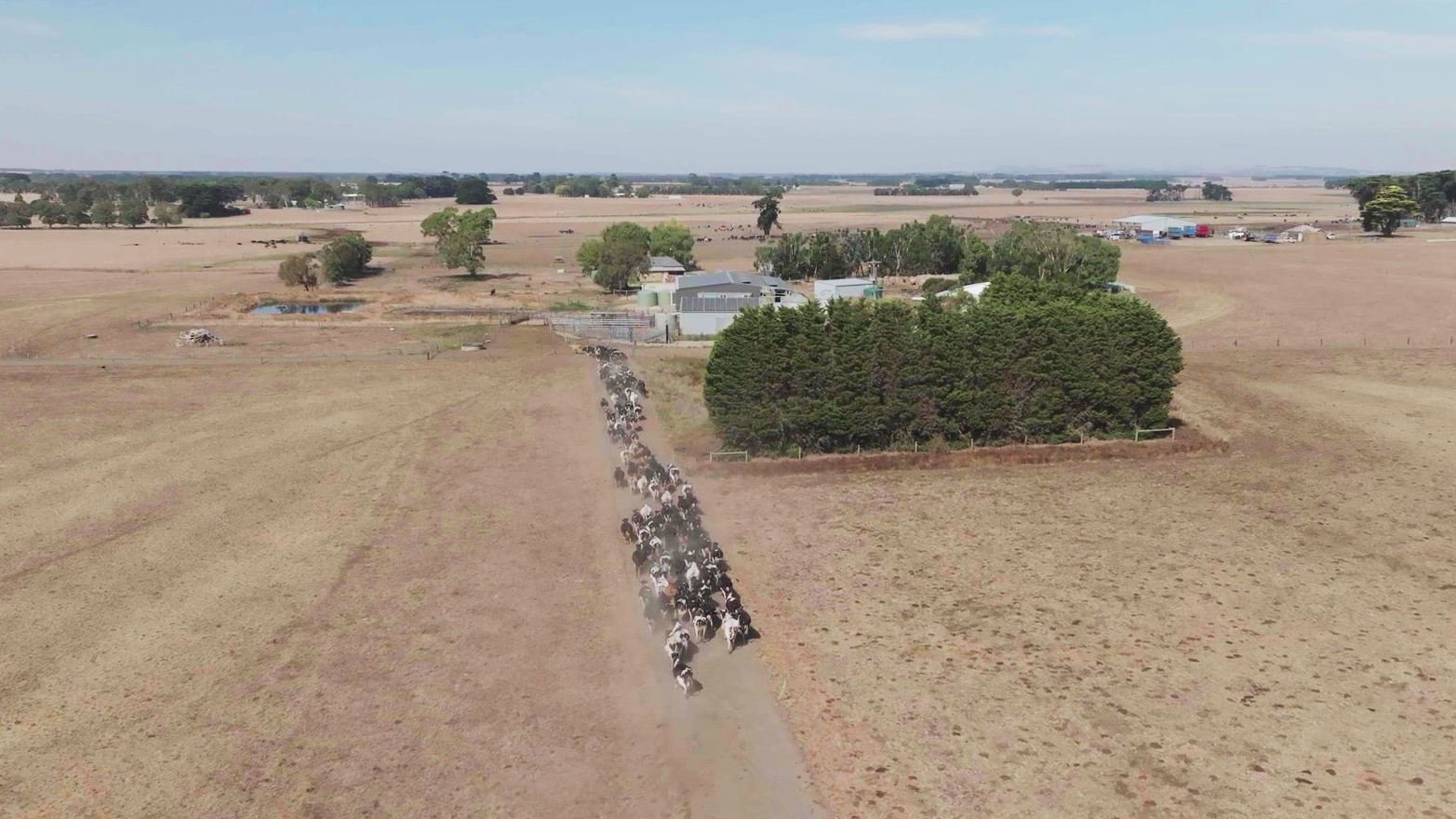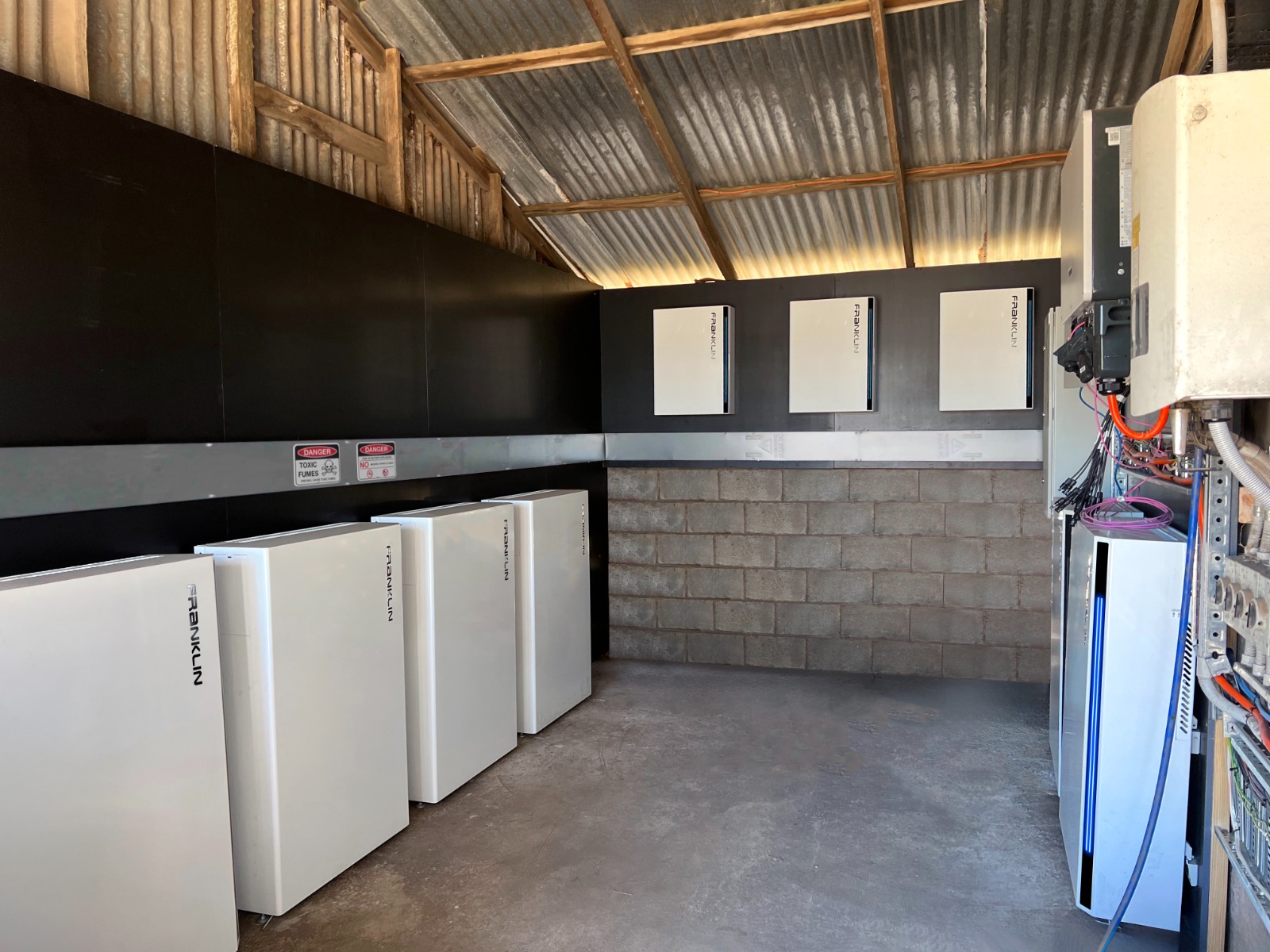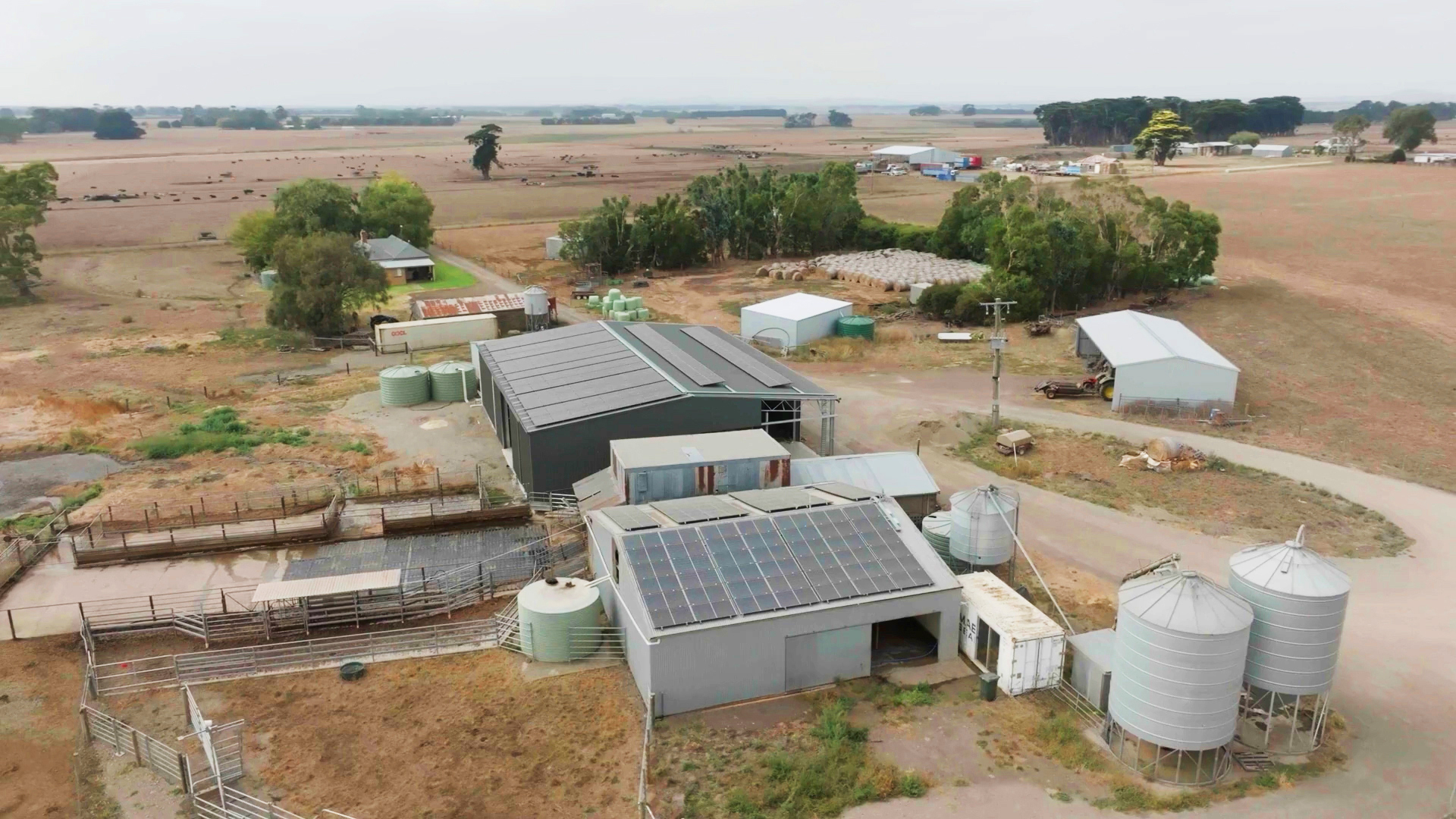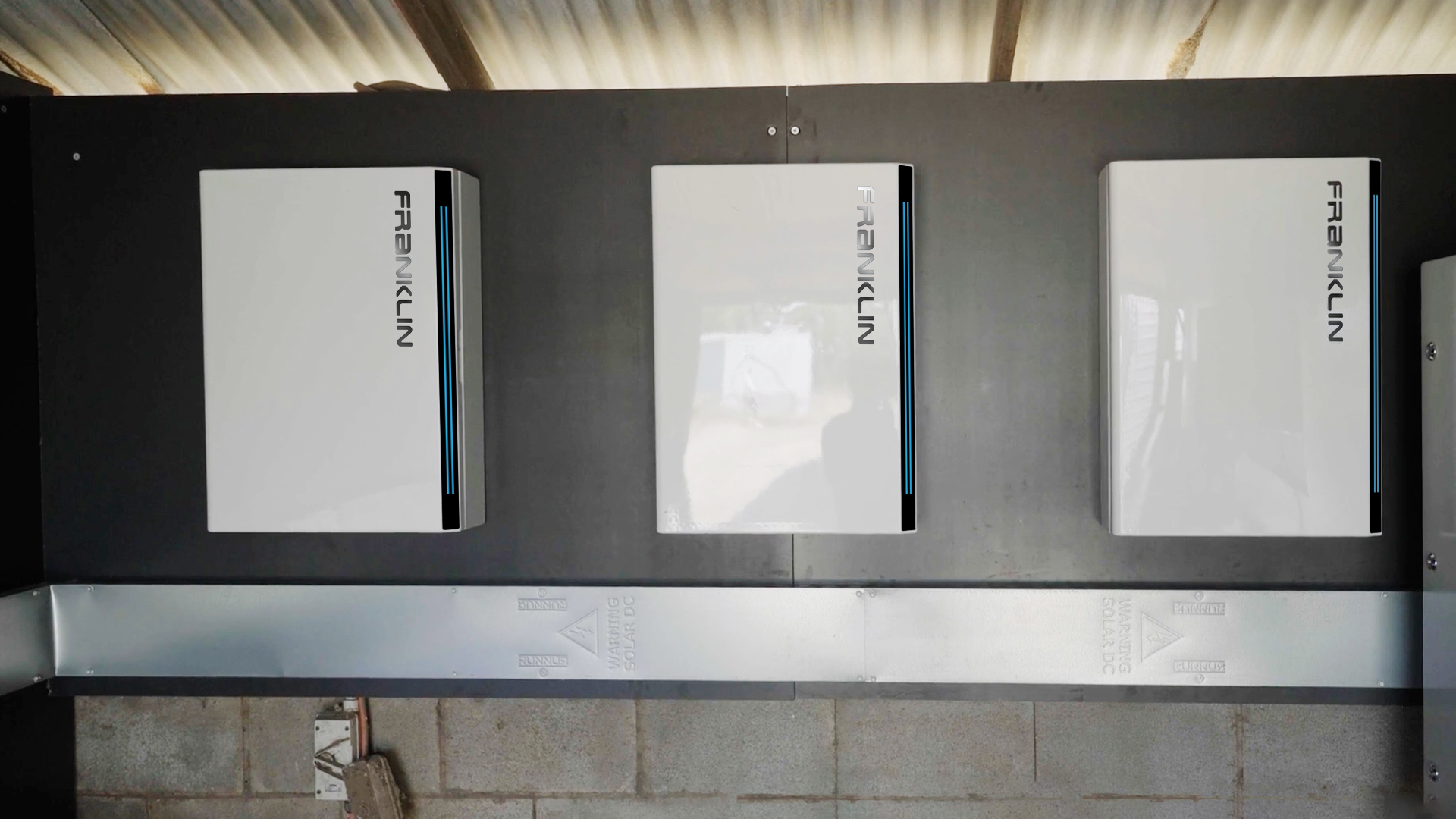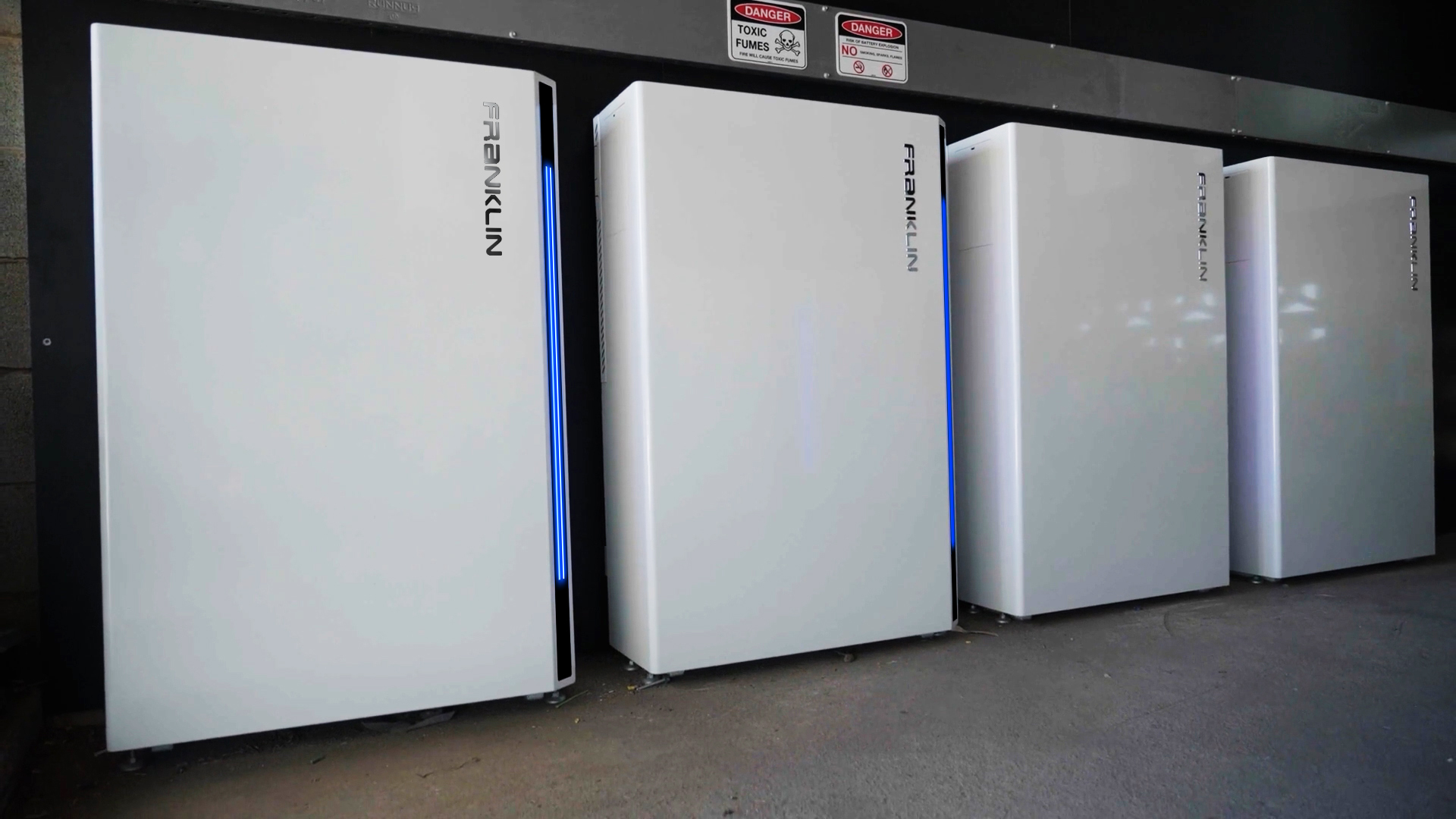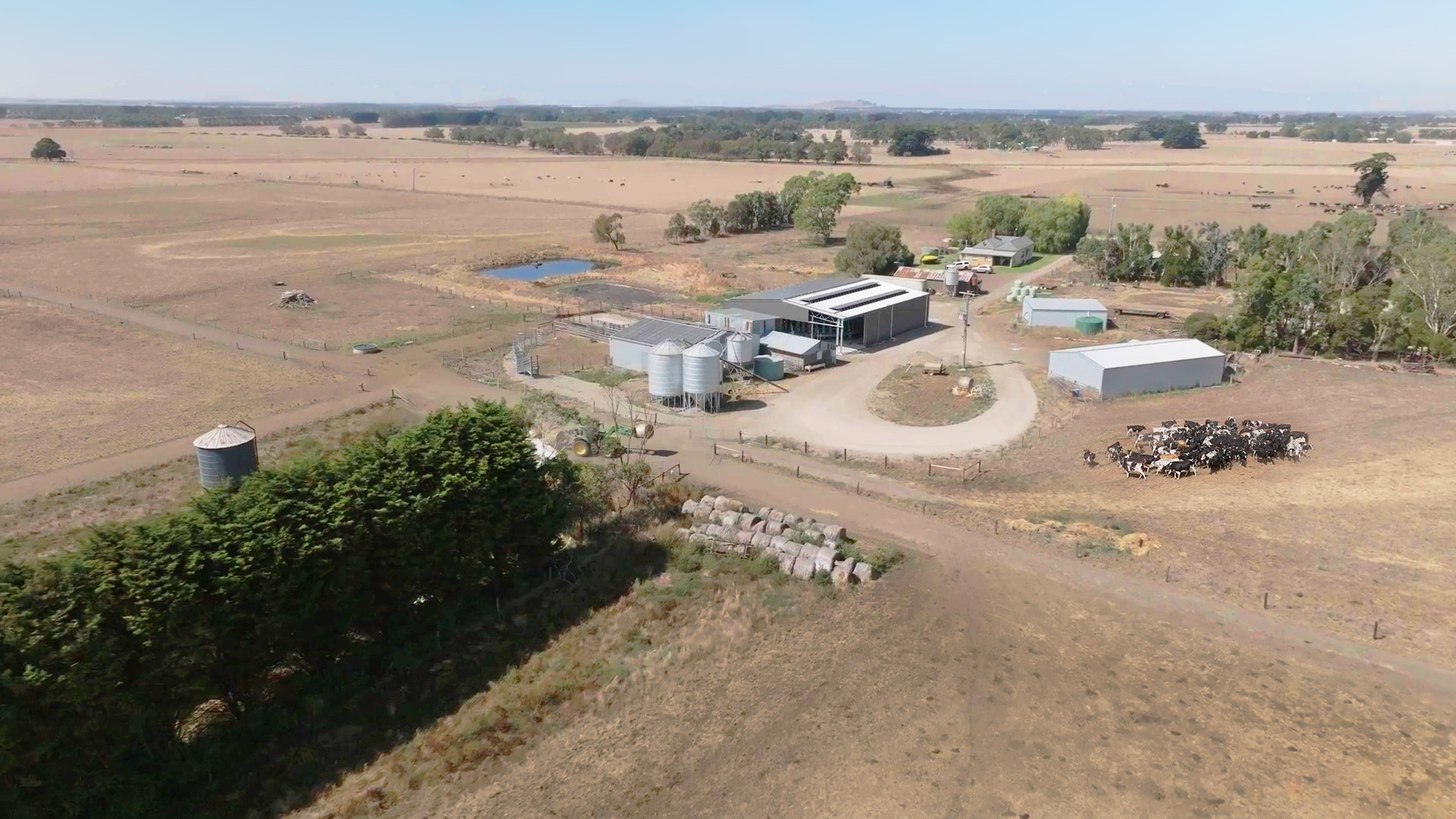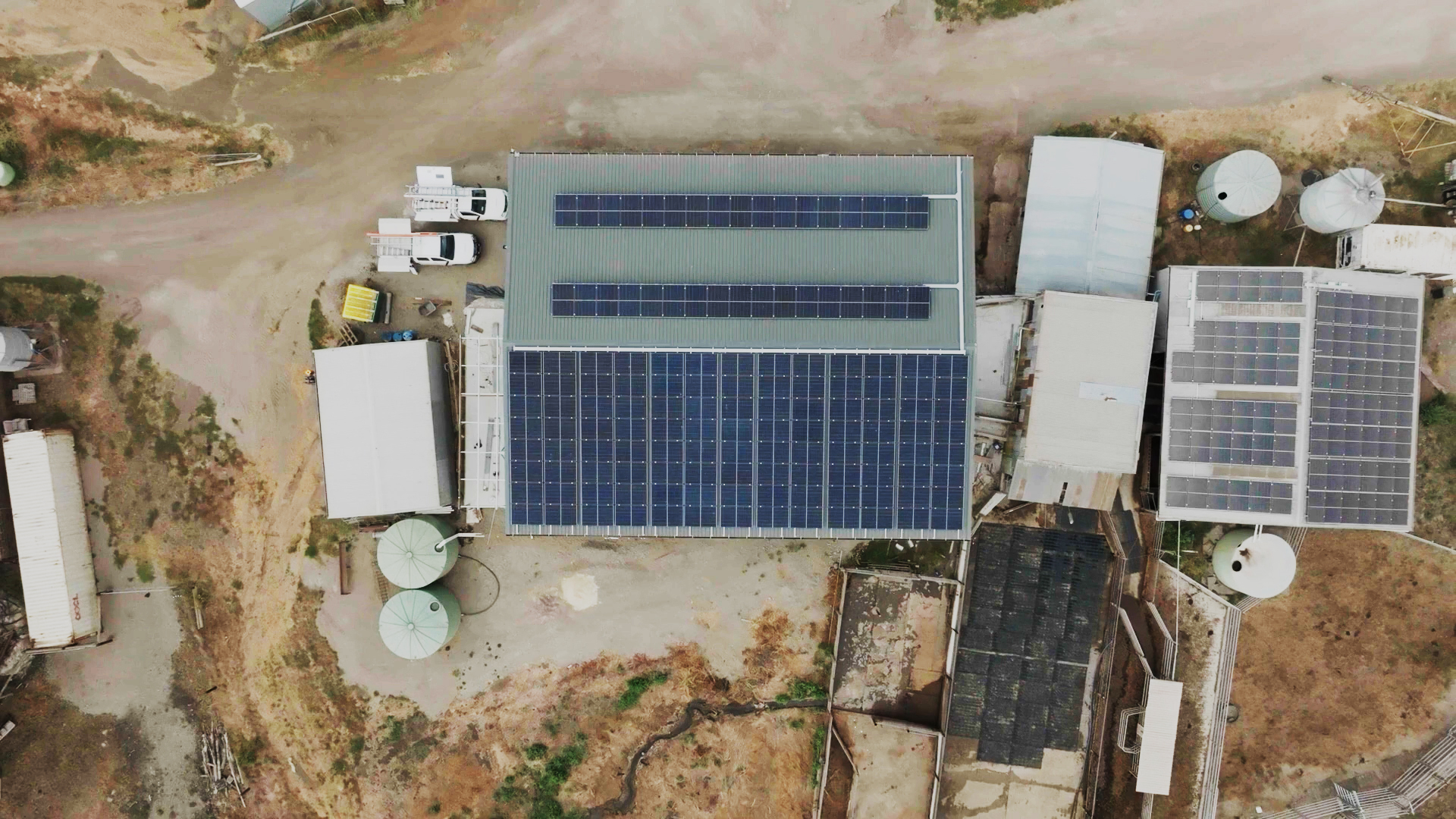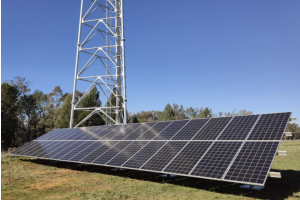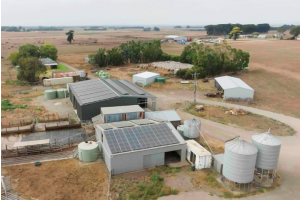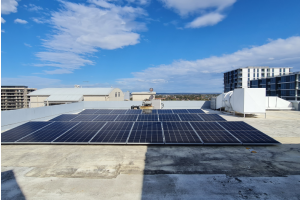Project Overview
Project Name: Franklin Dairy Farm Project
Location: Glenormiston South
Duration: 6 months
Industry: Commercial
Products Used: Franklin Home Power 14KWH 240VAC (A Gate + A Power)
Objective
A fourth-generation dairy farm with operations that are predominantly outside of daylight hours, making conventional solar solutions insufficient to meet energy needs. Additionally, the farm faced the challenge of widely fluctuating energy demands, particularly during peak milking times.
Methodology
Add 70 kW new solar panels and a FranklinWH system of six aPower batteries, providing an enormous 81.6 kWh of energy storage to cover the farm’s daily operation to gain energy independence. Six more batteries are on the way.
Analysis and Results
The Franklin Dairy Farm Project yielded significant outcomes and benefits:
- Expected electricity bill reduction of 75%
- Resilience against power outages
- Sustainable energy consumption
A Fourth-generation Dairy Farm Encounters Energy Challenge
Steve, a fourth-generation dairy farmer, operates a modernized dairy farm equipped with advanced technology to enhance efficiency and sustainability, and a legacy of commitment to supplying local communities with high-quality milk.
Like many dairy farmers, Steve encounters various challenges, including fluctuating milk prices, seasonal conditions affecting grass growth for feed, and escalating electricity bills. Additionally, the remote location of his farm poses a risk of power disruptions, which could have catastrophic consequences for his business operations.
Over the years, he has witnessed the evolution of dairy farming, marked by technological advancements aimed at optimizing production while minimizing environmental impact. That technology, however, has meant an increased demand for electricity.
Integration of Solar Power
Recognizing the need to reduce overhead costs and embrace sustainability, Steve invested in solar power infrastructure. Initially installing a 30-kW solar system on one of his older dairy sheds, Steve witnessed tangible benefits but realized the potential for further optimization.
Energy Management and Battery Storage
To maximize the utilization of solar energy, especially outside of daylight hours, and to address the limitations of feeding excess power back into the grid, Steve opted to incorporate an energy management system with battery storage technology. With installing six FranklinWH batteries, and plans for six more, Steve aims to achieve significant energy autonomy and provide resilience against power outages.
The new solar plus storage project commenced with a thorough assessment of the farm's energy consumption patterns. Leveraging smart meter data and historical usage information, the installer, Australian Enviro Projects, developed a tailored solar system capable of producing 400 kW of energy per day. Complementing this, they installed the FranklinWH system with intelligent energy management and six FranklinWH aPower batteries, each with a capacity of 13.6 kWh. They are so happy with the initial system, that they will be installing an extra six batteries.
Conclusion
The implemented solution has delivered significant benefits to the dairy farm. On average, the solar panels generate 380 kWh of power every day, surpassing the farm's daily consumption of 80-100 kWh. The battery storage ensures an uninterrupted power supply, particularly during inclement weather or low-light conditions. The FranklinWH system automatically balances solar energy, the grid, and battery storage to provide consistent power to keep the farm in full operation. This has not only reduced the farm's reliance on the grid but also provided cost savings and enhanced operational resilience by using stored solar power at night.


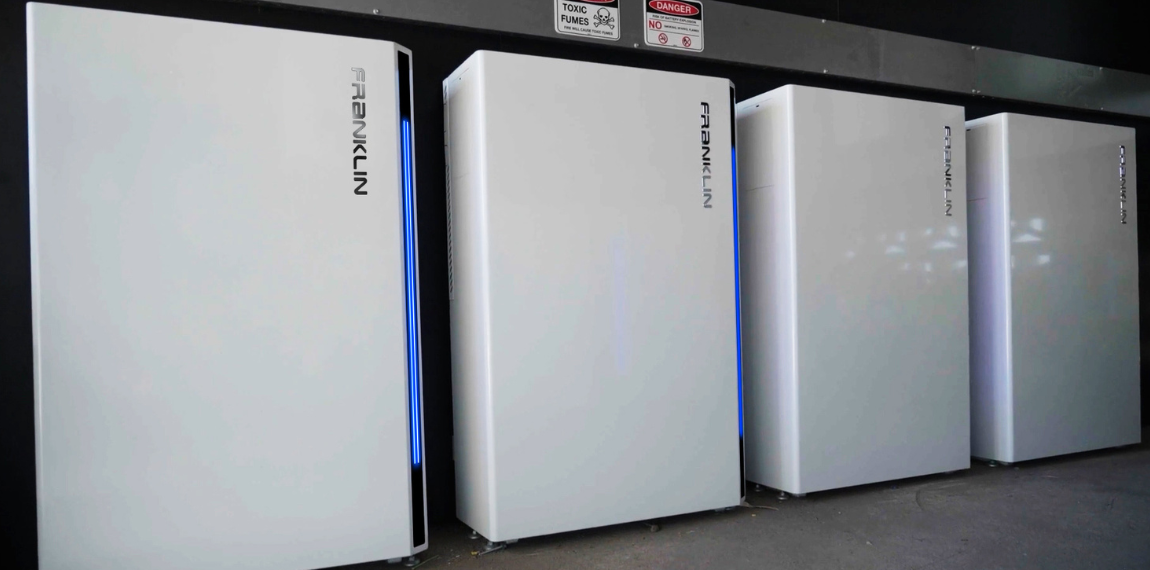
 Share this Case Study
Share this Case Study